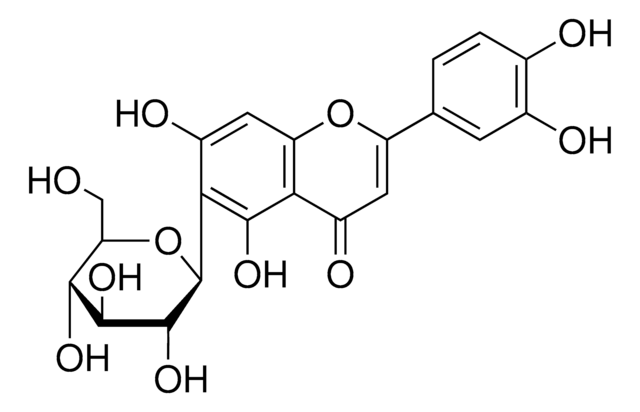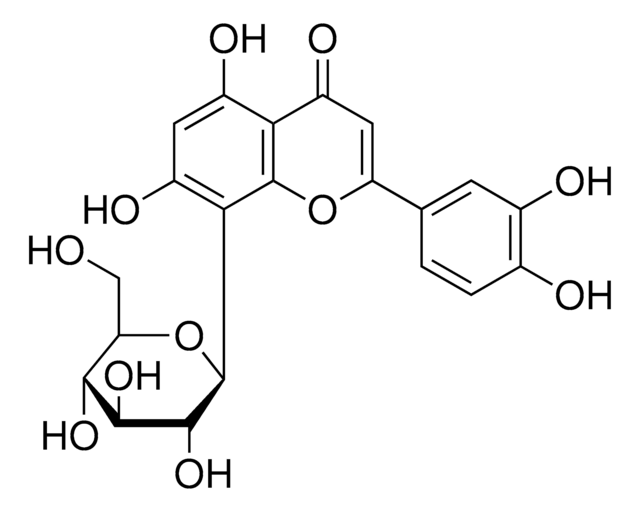O9765
Orientin
≥97% (HPLC)
Synonym(s):
8-β-D-Glucopyranosyl-3′,4′,5,7-tetrahydroxyflavone, Luteolin 8-C-β-D-glucopyranoside, Luteolin-8-glucoside, Lutexin
About This Item
Recommended Products
Quality Level
Assay
≥97% (HPLC)
form
powder
color
yellow
solubility
1 M NaOH: 1 mg/mL, clear, yellow-orange
application(s)
metabolomics
vitamins, nutraceuticals, and natural products
storage temp.
2-8°C
SMILES string
OC[C@H]1O[C@H]([C@H](O)[C@@H](O)[C@@H]1O)c2c(O)cc(O)c3C(=O)C=C(Oc23)c4ccc(O)c(O)c4
InChI
1S/C21H20O11/c22-6-14-17(28)18(29)19(30)21(32-14)16-11(26)4-10(25)15-12(27)5-13(31-20(15)16)7-1-2-8(23)9(24)3-7/h1-5,14,17-19,21-26,28-30H,6H2/t14-,17-,18+,19-,21+/m1/s1
InChI key
PLAPMLGJVGLZOV-VPRICQMDSA-N
Looking for similar products? Visit Product Comparison Guide
General description
Application
- as an anti-inflammatory and anti-proliferative agent to test its protective effects against 1,2-dimethyl hydrazine (DMH)-induced colorectal cancer in rats model
- as a flavanoid to investigate its protective effects against mitochondrial dysfunction on antimycin-A induced murine C2C12 skeletal muscle cells
- as a potential endonuclease inhibitor of influenza polymerase PA subunit
Biochem/physiol Actions
Storage Class Code
11 - Combustible Solids
WGK
WGK 3
Flash Point(F)
Not applicable
Flash Point(C)
Not applicable
Choose from one of the most recent versions:
Already Own This Product?
Find documentation for the products that you have recently purchased in the Document Library.
Customers Also Viewed
Our team of scientists has experience in all areas of research including Life Science, Material Science, Chemical Synthesis, Chromatography, Analytical and many others.
Contact Technical Service








